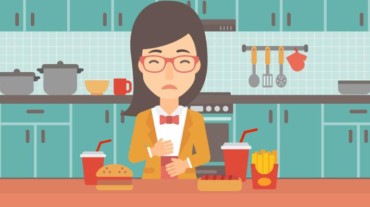
Many cultures consider grains to be sacred, because they are considered life-giving. To be honest, isn’t far from the truth if you think about it. Grains like wheat, barley, and rye are converted into flour, and used widely across multiple cuisines. Be it the comforting roti, the fancy pizza, or the sweet cupcakes, you require flour to make most dishes.
There’s no doubt that flour is important to make food, but what if you discovered you’re allergic to the exact thing that gives you life? Well, most flours contain a protein called gluten. It’s what helps to bind the flour, giving it a sticky texture. It’s actually a fairly harmless ingredient for most people but for those allergic to it, it can be extremely damaging.
You see, when you’re allergic to gluten, your body attacks itself. It goes into an overdrive against the protein, and ends up damaging its own intestines. Apart from the immediate discomfort, it can have devastating long-term effects.
When your small intestine gets damaged, it won’t be able to absorb nutrients. Eventually, this mal-absorption can result in several deficiencies and diseases, related to malnourishment.
Allergy to gluten is referred to as celiac disease, which is classified as an autoimmune disorder. It isn’t just a simple allergic reaction, but a life-threatening attack initiated by the body’s immune system, with no medicine for cure. The only way to ensure gluten doesn’t hurt you is to avoid it. Yes, you’d have to cut all sources of gluten from your diet.

Well, the tricky part with celiac disease is that the symptoms are very common. It may seem like a simple digestion problem, until things get too serious. Here are some of the most common symptoms associated with it:
When the disease progresses and your body isn’t absorbing any nutrients, the symptoms might get more pronounced:
Clearly, you need to take celiac disease seriously, and get yourself diagnosed in order to make appropriate diet changes and replenish any deficiency.

It can be diagnosed with simple blood tests:
Visit your doctor because other tests could be suggested, based on your case. In addition, if you get diagnosed with celiac disease, go for a diet plan developed by a professional to ensure you’re meeting all your nutrient and vitamin needs. In the meanwhile, stop consuming anything with gluten in it. Ensure you’re checking the ingredient list of anything you’re buying from the market. Moreover, you can amp up the vegetables and fruits on your plate, because these are rich in all the essential nutrients but devoid of gluten.
Select Topics of your interest and let us customize your feed.
PERSONALISE NOWCeliac disease is manageable, if you’re eating right and avoiding gluten!